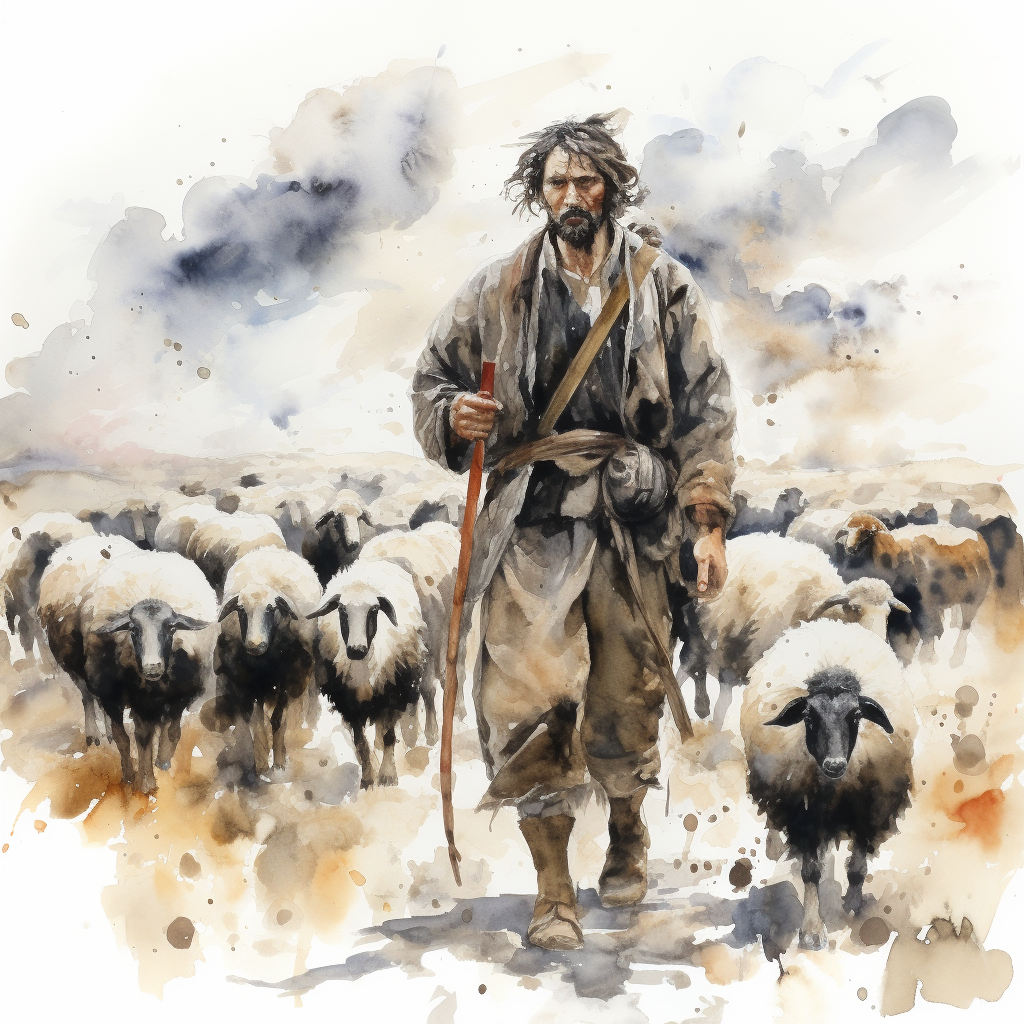The Shepherds

Luke 2: 8-18
“Let us go over to Bethlehem and see this thing that has happened,
which the Lord has made known to us.”
We’re often told that shepherds were a rough, disreputable lot. They were poor, uneducated, uncouth, we are reminded. Considered thieves and liars.
All of that is true, but that depiction misses the most damning designation: shepherds were “unclean.” Their gritty work made it impossible to meet the stringent demands of Jewish purity laws, so they were not welcome in the temple. Worse yet, because their flocks demanded daily work they couldn’t keep Sabbath, a violation punishable by death.
Perhaps these sheep workers wished they could go up to the temple with their community, their people—wished they could take part in the rituals that made them right with God. But maybe, after centuries and generations of exclusion, they didn’t even care anymore. The religious life seemed like one vast charade. After all, every day, morning and evening in that temple, the priests were sacrificing one unblemished lamb . . . that likely came from their flocks. They were the “essential workers” who made the whole show possible, but they themselves were rejected. Talk about hypocrisy.
It’s not too much, then, to say that the angels brought the message of salvation to a bunch of folks who didn’t like church, as we Christians might say. They came to people who had given up on religion, because religion had given up on them.
Many people feel reproached by religion, rejected by church, estranged from God. They’ve tried and failed, and they aren’t trying anymore. The angels’ message of God’s universal love and acceptance comes first to them. The rest of us can also receive that good news, but it is first for the shepherds (and the hidden shepherd within every human heart).
Prayer: As the Christmas message is proclaimed this year, Lord, let me be a shepherd. Amen.
Good news always seems to come to the poor and outcast first – the ones God values and honors because the world doesn’t?
Right—and the big question for all of us non-shepherds is, How can I find that place of poverty and exclusion in my own heart?
Thank you for all your posts. They give me encouragement. I like reading them befor i start my days. Thank you and happy holidays to your family.
Thanks for being on this Advent journey.
One of your very best, David. Not just of this series, but of all previous posts. This one stung.
I’m reading through the Bible, one chapter a day. I’m in Numbers and still encountering all the “if you’re unclearn, don’t come near the Tabernacle.” Over and over–in narcotic repetition–the point is made.
But never did I see it: you who make worship possible are not welcome at worship. And that’s putting it mildly. It says, “If you come, we’ll kill you.”
To this system, Jesus had to come. The veil had to be torn.
Now, what of the veils we’ve subsequently hung?
That’s a good, haunting question—the last one about veils we have stitched back together and re-hung. A good Advent question. Thank you, Michael
“many who are first will be last, and many who are last will be first” – I’ve been taking the 4:56am train to NYC a few times this month to have early breakfasts with clients..it’s a shockingly packed train filled with construction workers. My first thought is man these are the people that make America go…grinding it out to get by, contributing to America’s infrastructure. The illusion of me somehow being superior with my white collar job is an absolute farce.
That’s a modern-day parable—the Parable of the Workers on the Train. That image stays with me, Matt—-thank you.
David, I agree with Michael — this is one of your very best. Thank you from another Michael
I have a blessing of Michaels!